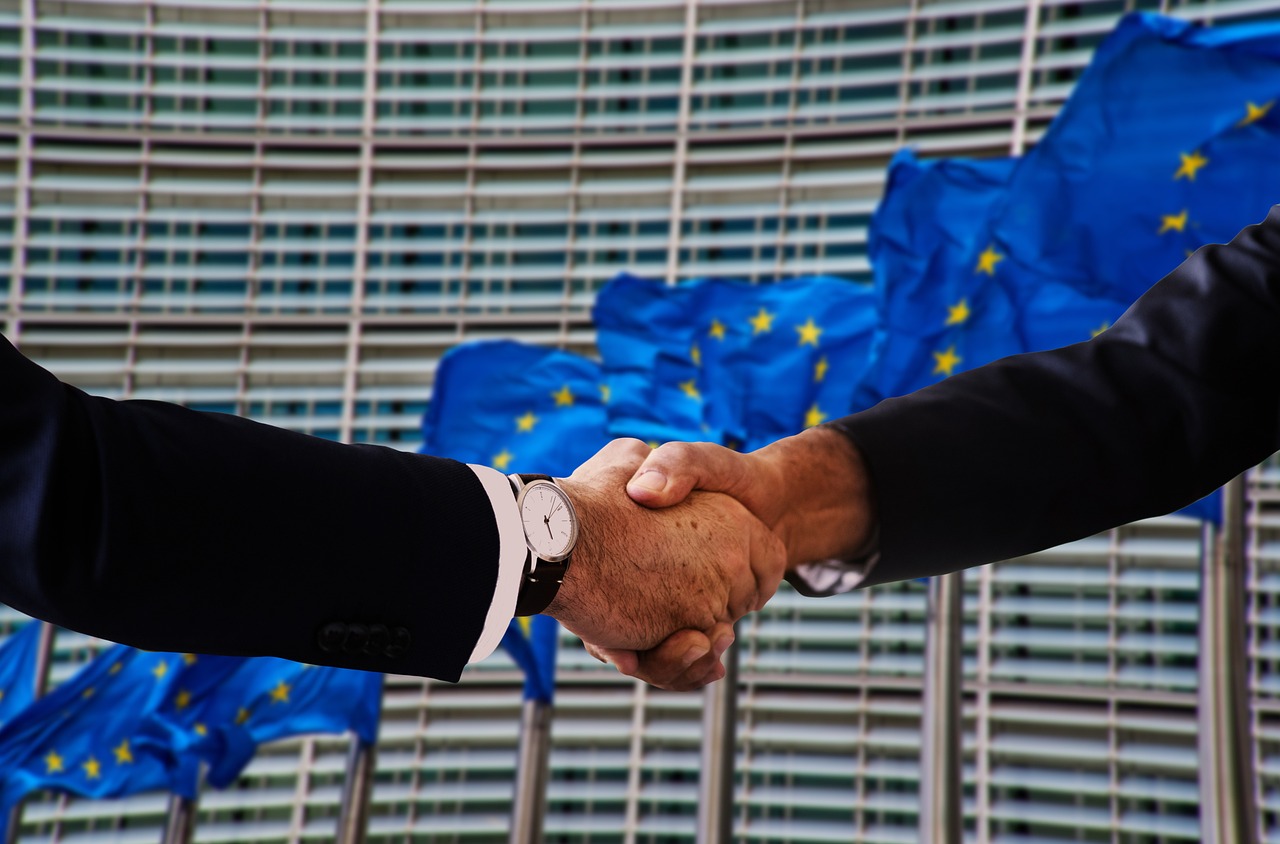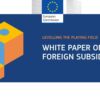Blog Archive

The Informal Turn: Soft Law Regulatory Frameworks in EU External Relations?
The use of soft law in the external dimension of EU migration law has become particularly visible recently. However, this might be a sign of a more general path to soft regulation undertaken by the EU in external affairs. Through a survey of Memoranda of Understanding from 1974 to 2019, Ilaria Ronconi and Salvo Nicolosi explain that the EU has been increasingly relying on soft law arrangements, but its use differs across various policy areas, with major risks for the constitutional fabric of EU law, especially in the area of migration.
Ilaria Ronconi is an LLM student in European Law at Utrecht University.
Salvo Nicolosi is a RENFORCE Senior Researcher and Associate Professor in European and International Law at Utrecht University Law School.

Imbalance of Power in the Copyright Tug-of-War between Press Publishers and Internet Service Providers: The Example of Poland’s implementation of Digital Single Market Directive
The rise of digital platforms like Google and Facebook has transformed the media landscape, allowing them to distribute press publishers’ content while often monetising it without fair compensation. To address this, the EU introduced the Digital Single Market Directive (DSM), aiming to ensure fair use and remuneration for publishers. However, Poland’s implementation of the DSM has faced significant hurdles, revealing the challenges in establishing effective secondary rights for publishers and enforcement mechanisms, argues Malgorzata Kozak.
Read more
Uitsluiting van ontvangers van buitenlandse subsidies in aanbestedingsprocedures: bezinning geboden!
In juni 2020 heeft de Europese Commissie een witboek gepubliceerd over het tot stand brengen van een gelijk speelveld wat betreft buitenlandse subsidies. Een belangrijk onderdeel van het witboek is hoe dit spanningsveld uitwerkt in het kader van procedures voor het plaatsen van overheidsopdrachten. De Commissie constateert dat sprake is van een lacune in de regelgeving, om vervolgens een voorstel te doen voor een nieuwe wettelijke uitsluitingsgrond in aanbestedingsprocedures. In deze blogpost zal Emma Wiggers onderzoeken met welke initiële kanttekeningen de Commissie rekening moet houden.
Read more
Enforcement of intellectual property rights: pioneering in private enforcement
European law plays a major role in the enforcement of intellectual property rights. The innovative rules and practices developed by the EU in this area provide a wide range of enforcement tools and introduce a European system of enforcement principles. In this post, the sixth in RENFORCE Blog’s special series on the enforcement of EU law, Peter Blok explains that intellectual property law is therefore a rich source for the study and further development of European law enforcement in general and private law enforcement in particular.
Read more
Towards Better Enforcement of EU Chemicals Rules: The 2020 Commission Strategy and the Registration of Chemicals
EU chemicals policy has been one of the most ambitious and detailed areas of the EU regulatory polity. In part five of RENFORCE Blog’s special series on the enforcement of EU law, Leander Stähler addresses a concrete challenge to enforcing these rules – the registration of chemicals – and highlights the potential of the Commission’s new strategy.
Read more
The case of AstraZeneca’s COVID-19 vaccine and the complex enforcement of EU medicines policy
Based on the member states’ responses to the rare but severe side effects of the AstraZeneca COVID-19 vaccine, one might be tempted to believe that there is no common approach to enforcing European Union (EU) medicines policy. In this post, the fourth in a special RENFORCE Blog series on the enforcement of EU law, Laurens van Kreij takes a more nuanced look at medicines policy’s complexities, and explains why the national responses were able to diverge so strongly. He thinks the chances of rapid and major change are slim.
Read more
Access to justice and EU enforcement agencies in the field of migration: an emerging problem
In this post, part of a special RENFORCE Blog series on the enforcement of EU law, Salvatore Nicolosi acknowledges the potential of EU migration agencies to support Member States in enforcing EU rules, but explains how an enhanced form of EU law enforcement through agencies should not be detrimental to the legal guarantees of migrants.
Read more
The EU Global Human Rights Sanctions Regime: How to Enforce Member States’ Compliance with Travel Bans?
In this second post in RENFORCE Blog’s special series on enforcement, Cedric Ryngaert highlights the Commission’s unsuccessful attempts to expand its limited enforcement powers over travel bans in the context of the recent adoption of the Global Human Rights Sanctions Regime. If centralized EU-level enforcement of travel bans is desirable, how might it be secured: through treaty change, or political pressure?
Read more
DMA: a step forward in ensuring swift intervention in the digital sector but flexibility is key
Carla Farinhas
This blogpost is part of a series of short commentaries on the European Commission’s proposals for a Digital Markets Act and a Digital Services Act, released on 15 December 2020. Stay tuned for more.
Competition law enforcement takes too long
The Commission has heavily fined large technology companies for breach of competition rules in recent years. However, it is common ground that the protection of competition in the digital sector is at risk. There are gaps in the existing rules, but one of the main difficulties is the fast-changing pace of digital markets which is at odds with the time it takes to complete case-by-case full-fledged investigations.
Cases that take years to decide risk being all for naught if the practices harm competition in an irreparable manner while the investigation is ongoing. However, streamlining investigations in the digital sector is not easy. Cases tend to raise new and complex issues and the authorities always need to gather solid evidence to prove that the rules have been breached and follow due process.
Read more
The DSA and future enforcement of EU consumer protection law
Bram Duivenvoorde
This blogpost is part of a series of short commentaries on the European Commission’s proposals for a Digital Markets Act and a Digital Services Act, released on 15 December 2020. Stay tuned for more.
On 15 December 2020, the draft Digital Services Act (DSA) was published by the European Commission. The DSA will regulate digital services that act as intermediaries, connecting consumers with goods, services and content. Amongst other goals, the DSA aims to provide better protection to consumers online and should lead to a fairer digital market. What will the DSA mean for the future enforcement of consumer protection law through and against platforms? These are my initial thoughts on this topic.
Read more
